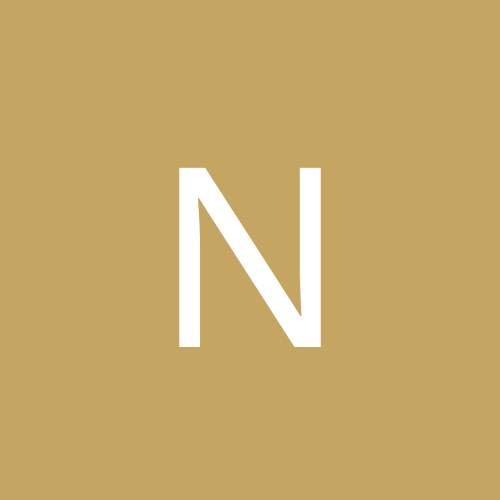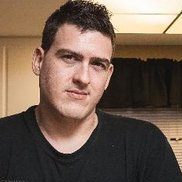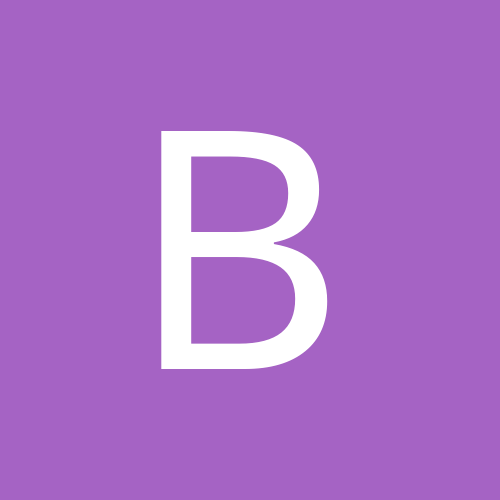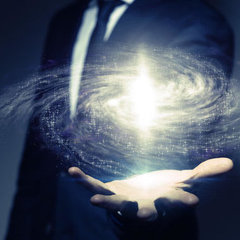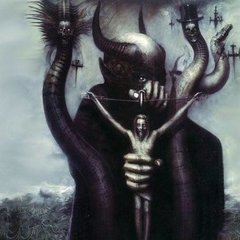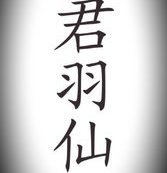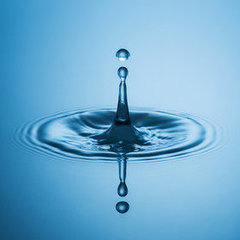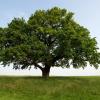Search the Community
Showing results for tags 'qigong'.
Found 186 results
-

Emotions in Health Preservation and Internal Training
senseless virtue posted a topic in Daoist Discussion
Discussion about the meaning and importance of emotional regulation in preserving good health and being a competent internal training practitioner. There are a few ways to formulate the seven emotions in terms of Classical Chinese Medicine so here are two good sources giving slightly different points of view. Please note that this is an issue of translation and interpretation: the basic theory connecting to the five element transformations and the respective organ systems is not changed. What Are The Seven Emotions? Suwen (The Book of Plain Questions) says "The five yin-organs of the human body produce five kinds of essential qi, which bring forth joy, anger, grief, worry, and fear." TCM also believes that certain organs are related to emotional activities, i.e. the heart is related to joy, the liver to anger, the spleen to pensiveness, the lungs to anxiety and the kidneys to fear. The emotions are considered the major internal causes of disease in TCM. Emotional activity is seen as a normal, internal, physiological response to stimuli from the external environment. Within normal limits, emotions cause no disease or weakness in the body. However, when emotions become so powerful that they become uncontrollable and overwhelm or possess a person, then they can cause serious injury to the internal organs and open the door to disease. It is not the intensity as much as the prolonged duration or an extreme emotion, which causes damage. While Western physicians tend to stress the psychological aspects of psychosomatic ailments, the pathological damage to the internal organs is very real indeed and is of primary concern of the TCM practitioner. Excess emotional activity causes severe yin-yang energy imbalances, wild aberrations in the flow of blood, qi (vital energy) blockages in the meridians and impairment of vital organ functions. Once physical damage has begun, it is insufficient to eliminate the offending emotion to affect a cure; the prolonged emotional stress will require physical action as well. The emotions represent different human reactions to certain stimuli and do not cause disease under normal conditions. 喜 Joy "When one is excessively joyful, the spirit scatters and can no longer be stored," states the Lingshu (The Vital Axis). However, in TCM, joy refers to a states of agitation or overexcitement, rather than the more passive notion of deep contentment. The organ most affected is the heart. Over-stimulation can lead to problems of heart fire connected with such symptoms as feelings of agitation, insomnia and palpitations. 怒 Anger Anger, as described by TCM, covers the full range of associated emotions including resentment, irritability, and frustration. An excess of rich blood makes one prone to anger. Anger will thus affect the liver, resulting in stagnation of liver qi (vital energy). This can lead to liver energy rising to the head, resulting in headaches, dizziness, and other symptoms. In the long run it can result in high blood pressure and can cause problems with the stomach and the spleen. It is commonly observed that ruddy, "full-blooded" people with flushed faces are more prone than others to sudden fits of rage at the slightest provocation. 憂 Anxiety "When one feels anxiety, the qi (vital energy) is blocked and does not move." Anxiety injures the lungs, which control qi (vital energy) through breathing. Common symptoms of extreme anxiety are retention of breath, shallow, and irregular breathing. The shortage of breath experienced during periods of anxiety is common to everyone. Anxiety also injures the lungs' coupled organ, the large intestine. For example, over-anxious people are prone to ulcerative colitis. 思 Pensiveness In TCM, pensiveness or concentration is considered to be the result of thinking too much or excessive mental and intellectual stimulation. Any activity that involves a lot of mental effort will run the risk of causing disharmony. The organ most directly at risk is the spleen. This can lead to a deficiency of spleen qi (vital energy), in turn causing worry and resulting in fatigue, lethargy, and inability to concentrate. 悲 Grief The lungs are more directly involved with this emotion. A normal and healthy expression of grief can be expressed as sobbing that originates in the depths of the lungs - deep breathes and the expulsion of air with the sob. However, grief that remains unresolved and becomes chronic can create disharmony in the lungs, weakening the lung qi (vital energy). This in turn can interfere with the lung's function of circulating qi (vital energy) around the body. 恐 Fear Fear is a normal and adaptive human emotion. But when it becomes chronic and when the perceived cause of the fear cannot be directly addressed, then this is likely to lead to disharmony. The organs most at risk are the kidneys. In cases of extreme fright, the kidney's ability to hold qi (vital energy) may be impaired leading to involuntary urination. This can be a particular problem with children. 驚 Fright Fright is another emotion not specifically related to only one organ. It is distinguished from fear by its sudden, unexpected nature. Fright primarily affects the heart, especially in the initial stages, but if it persists for some time, it becomes conscious fear and moves to the kidneys. Adapted and slightly edited from: http://www.shen-nong.com/eng/principles/sevenemotions.html The Seven Emotions and Qigong The seven human emotions, i.e. joy, anger, worry, anxiety, sorrow, fear, and terror are normal phenomena of life activities which do not induce diseases under normal circumstances. However, abnormal fluctuations in the “seven emotions” may directly affect he functions of the viscera, disturb the circulation of blood and Qi, and thus cause diseases. Being affected by these emotions, the exerciser of Health Qigong will not be able to enter a peaceful and calm state free of distracting thoughts. And the results of the exercise will be naturally affected. It is believed in theories of the traditional Chinese medicine that: “Anger impairs the liver, joy impairs the heart, worry impairs the spleen, sorrow impairs the lungs, and terror impairs the kidneys.” Yellow Emperor’s Classic of Internal Medicine: Su Wen: Ju Tong Lun says: “Rage drives Qi upward, overjoy slackens Qi, excessive sorrow consumes Qi, terror collapses Qi, …… and anxiety causes Qi stagnation”. All of these have indicated that the excessive and over-excited “seven emotions” will impair the mental and physical health of man to certain extents. Joy is an embodiment of the happy and delighted mind. Yellow Emperor’s Classic of Internal Medicine: Su Wen: Ju Tong Lun says: “Joy will harmonize Qi and facilitate both nutrient and defensive Qi.” But over-joy will impair the cardiac Qi, just as Yellow Emperor’s Classic of Internal Medicine: Ling Shu: Ben Shen says: “The spirit should be hidden and kept from being lost during joy”, indicating that excessive joy will impair the mind. The heart is the core, commander, and grand master of all the five Zang viscera. It is the key to the health of the body. By practicing Health Qigong, we can regulate the blood-pumping function of the heart and enrich cardiac Qi. Anger is an embodiment of agitated emotion of man. People get angry and furious when they are discontent and unsatisfied. Generally speaking, proper expression of emotions is important for maintaining the physiological equilibrium of the human body. But persistent rage, fury, and gloominess will cause negative effects on the organism. Gloominess impairs the liver and upheaves liver Qi. Blood will ascend with the upward invasion of liver Qi, congesting the brain and causing discomfort of the body. This will lead to headaches, cerebral distension, hypochondriac pains, chest distress, dry eye syndrome, and even critical symptoms such as faint, hematemesis, and shock. Yellow Emperor’s Classic of Internal Medicine: Su Wen: Ju Tong Lun says: “All diseases originate from Qi…… Anger will cause adverse rising of Qi and even hematemesis or diarrhea”. Yellow Emperor’s Classic of Internal Medicine: Su Wen: Sheng Qi Tong Tian Lun says: “Excessive anger leads to segregation of QI from the configuration; and blood stagnating in the upper part of the body will cause raged syncope.” The liver controls dispersion and blood storage. It facilitates the functional activities of Qi throughout the body, keeps unobstructed circulation of Qi in the channels of all viscera, stores blood, transports blood, and regulates and controls the blood supply for various parts of the body. Worry means something or someone that causes anxiety. Excessive worries will have negative effects on the organism, impede the movements of Qi, and cause Qi stagnation. It is believed in traditional Chinese medicine that: “anxiety causes Qi stagnation”. It was said in ancient times that: “When the shape is not straight, Qi will not move smoothly. When Qi does not move smoothly, the mind will not be at ease. When the mind is not at ease, spirit will be scattered”, indicating that obstructed circulation of Qi has a direct influence on the spirit of man. Excessive worries will lead to obscure complexion in the spleen and stomach, dyspepsia, insomnia and dreaminess, dizziness, and many other symptoms. Sorrow (depression) is the embodiment of sadness and depression. Excessive sorrow will impair the pulmonary Qi and cause short breath, just as Yellow Emperor’s Classic of Internal Medicine: Ling Shu: Ben Shen says: “sorrow will block Qi and hamper its circulation” and “deficient pulmonary Qi will cause nasal obstruction and asthenia Qi”. Fear (terror) is the embodiment of apprehensive and fright. Excessive terror will impair the kidneys and cause chaotic Qi in the viscera. Yellow Emperor’s Classic of Internal Medicine: Su Wen: Ju Tong Lun says: “Terror collapses Qi……Terror disorders Qi”. To sum up, all “seven emotions” have important connections with the internal organs of the human body. The “seven emotions” are normal emotional signs of man and do not induce diseases under normal circumstances. And they actually play an important role in maintaining the normal physiological functions of the human body. But over-excitation which exceeds the normal range of regulation of the human body will result in diseases. Exercises of Health Qigong are mainly featured by: Body regulation, breath regulation, and mind regulation. Body regulation is the basis for breath regulation and mind regulation, while mind regulation is the core of the “Three Regulations”. It provides good regulating effects on all the viscera. Therefore the “Three Regulations” have very good influencing, regulating, and controlling effects on the mental state and temperament of man. And the emotional changes of the “seven emotions” will in turn influence the results of Health Qigong exercise. Therefore it is of great importance and value to learn the “seven emotions” and maintain a normal state of the “seven emotions” during the practice of Health Qigong. By doing so we can gradually replenish the “three treasures” of body (essence, Qi, and spirit) to achieve sufficient essence, abundant Qi, and complete spirit and thus truly understand the essentials of health preservation, disease prevention, and body-building. Adapted from here (original source isn't available anymore): https://neigong.net/2011/09/26/the-seven-emotions-and-qigong/ -
Hi everyone, this is my first post here. I want to share a very interesting book that I read recently. It's called China's Super Psychics, written by Paul Dong. Not sure whether you guys have heard of it or not. The author is a Qigong master himself, in this book he tells some really interesting stories about the Qigong fever in China in the 1980s. In one chapter, he even introduces a way to open "heavenly eyes", he says most people can achieve this with 4 months' practice. I'm impressed by one of the conclusions in the book, ie. Qigong practice has a strong relation to ESP abilities. The healing power of Qi is also real. He also mentions "bi gu" (Chinese fasting), it's basically an advanced form of Qigong. Basically, human beings can survive on Qi by practicing Qigong. I know some theories in Daoism also prove this. I'm still learning about these subjects and doing some research in my free time. Btw, I find this website has some instructional books on Qigong that seem legit. Also, here's an interesting released document on Qigong. I'm very happy to find this great forum. Hope to make some friends here!
-
Hello, Dao Bums! I would like to know if anyone can recommend a specialist or practitioner of Traditional Chinese medicine able to help with Qigong deviations, ideally someone in Central Florida or not far from it. The person in question is a Chinese female in her mid-50s with no previous history of mental illness. She learned qigong on her own without a teacher, and began forcefully and obsessively directing Qi into her head in an effort to develop psychic abilities. I believe she also mixed in Maya Fiennes' Kundalini Yoga videos. After many months or perhaps a year of this, she had the first of several psychotic episodes, and began hallucinating a voice. During these episodes, her body became very hot, rigid, and her skin very flushed, and she would make rapid jerking or shaking motions. Her behavior has been stable over a year, but she still hears the voice constantly, and says she feels 'bad Qi' moving around in the left side of her head. Any suggestions would be appreciated.
-
Hi everyone This is my welcome post and I thought I would initiate a discussion about something I have been interested recently. Do you know any specific schools (UK), or Qigong systems which allows you to do Qi transmission in order to heal others. I have a background in Chinese Medicine, hence in my understanding that is partially whats happening during Acupuncture or massage, etc. However I am looking for a system which is more specialized in using such a healing method. In regards to my experience I mostly practice Yang style TaijiQuan and TaijiJian with some Qigong exercises on the side. Thanks
-
Hello, I am new to qigong. I can't find a good teacher in my area so I am exploring online video courses. I started Damo Mitchell's online course on vimeo, for beginners. I am really confused about the basic standing position, more exactly - the knees. Should they be perpendicular to the ground? Like, from the ground to the knees, there is a straight line up? I am looking to learn just from video resources, but I want to have a 100% correct posture.
- 2 replies
-
- damo mitchell
- qigong
-
(and 1 more)
Tagged with:
-
So I was a student of Jim Mcmillan something like 12 years ago when I was around 16, at the time I took him at his word not having read The Magus of Java or heard anything conflicting. Now years later there are a lot of things that just seem off, level 1 just seems bare, and 2 goes against many Qi Gong and Nei Kung beliefs that proper breath is important. Also in The Magus of Java (which Kostas has admitted in an interview was embellished to make it a better read) they seem to disagree on things which shouldn't be the case for low level students. When speaking with Jim I remember asking if he could give any demonstrations and his words being "I don't have the Yin built up to do it without my master" he also mentioned that it takes many more years to accumulate equivalent Yin to post level 1 Yang collection. This doesn't make sense at all, Nei Kung is supposed to be more about Yin and Yang balance but yet seems that Mo Pai is still very Yang first and lacks proper technique to build Yin at the same speed. So now to my question, are there any good alternatives to Mo Pai? No so much interested in the 'abilities' of Mo Pai but rather than retaining consciousness after death portion (supposedly one must reach level 3/4) to obtain in Mo Pai. In Kostas books if anything he said is to be believed, is that there were 3 different lineages, one being Mo Pai, so there must be similar and better systems out there but I can't seem to find any good information, seems that Mo Pai reigns supreme despite having no knowledge (that can be confirmed) from the actual school. It's hard to tell the good schools from the fake so if anyone know of any that would be great.
-

Who is A Good Qigong Doctor That Was A Student of Dr. Jerry Alan Johnson for Dan Tian Gates Healing?
roycee00 posted a topic in Daodejing
Hi, I'm looking for a Qigong Doctor who was a graduate of Dr. Jerry Alan's Johnson's program because I want to seal the energy leaks that are exist in my dan tian gates (CV8, CV15, GV4, GV8, GV11, and GV14). Who do you recommend that I contact to get treatment? I live in New York, so if the doctor can work remotely, that would be great for me. I would appreciate your help!- 1 reply
-
- qigong doctor
- qigong
-
(and 2 more)
Tagged with:
-
Sorry if I hurt some sensibility if this is not the right place for my inquiry. I have been all my life seduced and spiritually fulfilled by the taoist understanding of phenomena related to Life and the Universe without really penetrating into any particular practice. Now I am approaching my 80th anniversary while in need to retrieve my physical and mental fitness. Right nowI am doing a basic Qigong routine but my goal is to develop a consistent Inner Orbit practice. I have found profuse instruction from Mantak Chia and others with many steps in the circulation of Qi, to other teachers indicating a very simple guidance with two steps breathing stages. I will appreciate your advise for an effective, not so intricate and meticulous Inner Orbit practice pointing the Qi or energy centers I have necessarily to deal with in order to activate the energy I need to be still healthy and aware. Thank you very much for your advise. Fer
-
Hey Spiritual cultivators I like to hear any advice on what happened next after three dantians are FILLED and flowing? recently couple days of ago, this happened to him while cultivating my lower dantian then it flow up fill my middle dantian for couples of weeks then fill my upper as well. Now when I cultivating my lower dantian (sitting meditation upon it) the qi flow from lower to middle to upper and now it return back to lower dantian. I like to know more about this process and what WILL happen next?
-
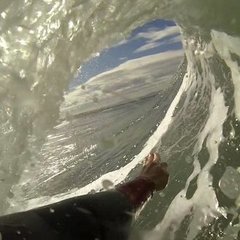
How do I tell when the Lower Dantian is full, and what to do?
Klinsly posted a topic in Daoist Discussion
Hi, first off I'm pretty new to practicing 7 months or so. My question is about how do you tell when the Lower Dantian is full and then what to do about it? I'm also going to include the sensation I had, as well as part of a extremely vivid dream where I also had the same sensation. Sadly this was months ago so perhaps my progress has gone backwards since then. I don't know why I didn't just come straight here.. So the feeling was of a pulsing/shaking sensation in my lower dantian area, kinda like a muscle spasm feeling. The dream I had was really cool and memorable. I had also read the Magus of Java twice so there was a John Chang like figure. Basically I was at some temple on a very small island surrounded by water somewhere in South East Asia and was sitting in a circle with several other students and they were doing a test to see if we were ready to advance. After awhile the master looked directly at me and put his palm up to his mouth and blew in my direction and all of a sudden that intense pulsing feeling happened in my Lower Dantian region. Afterward he walked over to me and said some joke to the rest of the guys about surfer's bodies and patted me in the stomach . Then I woke up. The guy who I had learned my basic movements from told me he wasn''t sure and that it probably just meant i actually had a LDT. Recently I opened up this thing from Dr. Yang and it described the exact feeling I had in regards to it being full but this was months after the feelings happened. And i haven't felt it since. https://ymaa.com/articles/2014/1/nei-dan-sitting-meditation Here's the quote from the end of the arcticle, "After you have practiced the abdominal exercises for about three to five weeks, you may feel your abdomen get warmer every time you practice. After continued practice, the abdomen will start to tremble and shake each time you start the fire. This means qi has accumulated at the lower dan tian and is about to overflow. At this time you should start to coordinate your breathing and abdominal movement with the movement of your huiyin (Co-1) (literally "meet the yin") cavity and perineum to lead the qi to the tailbone (weilu cavity)." Thanks so much for any advice! -

Who is A Good Qigong Doctor That Was A Student of Dr. Jerry Alan Johnson for Dan Tian Gates Healing?
roycee00 posted a topic in Daodejing
Hi, I'm looking for a Qigong Doctor who was a graduate of Dr. Jerry Alan's Johnson's program because I want to seal the energy leaks that are exist in my dan tian gates (CV8, CV15, GV4, GV8, GV11, and GV14). Who do you recommend that I contact to get treatment? I live in New York, so if the doctor can work remotely, that would be great for me. I would appreciate your help!-
- qigong doctor
- qigong
-
(and 2 more)
Tagged with:
-
Goodevening Guys. I am here to inquire about something. Is it possible for Qi to coincidentally affect a person's body movements? In my early meditation, I don't really have knowledge on qigong forms and all I do is lower dan tian breathing. I could also say that until now, all I do is the basics. When I first felt something, I randomly moved my body (hands, waist, head, neck, arms, elbow and any part of my upper body cause I am sitting). That is how I felt my body should move because of the freakin' vibrations on my body. Recently while browsing here, I stumbled upon the term "Flying Phoenix". The name is just cool so I looked into it. As I searched, I saw a Terrence Dunn video on youtube. As I saw his movements (upper body), I was shocked that the movements I thought that was random, was actually a real qigong stance, especially SOME hand movements. The only thing I am not certain of is that if I got the breathing patterns correctly. Also, some of my movements are the same, but the sequence of movements is not in proper order. So the question is, Is it Coincidence that I did those moves? Could Qi, possibly move a person's body? note: I am not a master nor a veteran. I am simply asking because I humbly admit that my knowledge is scarce. One thing I am sure of is, I am not a poser. I clearly want to learn and gain insight. . video reference:
-
Hi ! I’m passionate about Qigong since many years. I practice Elixir Light Qigong from Robert Peng and Ping Shuai Gong from Li Fengshan. I also practice Flying Phoenix, and I would like to have access to the Flying Phoenix forum if it’s possible. Thanks you, JM
-
Is it possible to combine different methods of energetic cultivation into a workable form? As of late I've been looking into kriya yoga and qigong in general. I am interested in the mind purifying facets of kriya yoga and the energetic control of qigong. Can one practice both daily without any detrimental effect? I want to combine a mind purifying practice with qigong because recently I saw an interview with the founder of spring forest qigong and he did the cough at a point when asked a question. That cough people do when they are disturbed by what someone is saying on a deep level, whether it be triggering an old negative experience or them projecting negativity outward and it bouncing back to them, etc. I did not expect to see this behavior in a master of qigong. I do not wish to pursue qigong exclusively if such mental dross is still present at such a high level of attainment. Also, an issue I'm currently facing with kriya yoga is that one must be "initiated" in order to practice within an official organization- I think it's something like being sworn in or adopting a lineage, and I am unsure of the spiritual ramifications of that so I am wary of it. Of course I would like to practice the true kriya yoga, though I fear it has been lost to time. Last thing, I was considering adding a weekly sensory deprivation chamber visit to my practice based upon what I've read about it so far. Does anyone here have any experience with them? Thank you for reading all of this I know a number of people read posts like this and dont have much to offer by means of advice or personal experience and that's okay- hope you are enjoying your day so far regardless
-
Hello Friends, This is my first post. I wanted to join thedaobums in the hope of possibly making some new friends and contacts, as well as engage in some good discussions about the site's many interesting topics. I've been a "lurker" for a while, and I have found this forum to be the most dynamic, eclectic and diverse of the several that I have belonged to which deal with related topics (dharmawheel and some esoteric forums). Anyway, my background is itself eclectic, and I'm increasingly having a difficult time fitting myself into a label, without, at the same time, being able or desirous of "rejecting" anything that I may have identified with in the past. On the whole, I think this is a good thing, as I see a major goal of the spiritual path as being able to transcend labels and "identities." At the same time, I'm finding it quite uncomfortable. It's like a man having 3 or 4 families which don't know or acknowledge each other, each of whom he loves deeply as "part of himself"; he is unable to live with any of them all the time, but unable to part with any of them in an absolute sense; at the same time, he has a sense that what he is truly seeking lies outside the very category of "family" (if this metaphor makes sense). With this in mind, I'm reluctant to call myself a "Buddhist," or "not a Buddhist," a "Christian," or "not a Christian," a "Taoist," or "not a Taoist," etc. Over the past five years, I've been deeply immersed in the Western Esoteric Tradition, particularly centred around the ideas of Renaissance magi such as Agrippa, Dee, Bruno, the Rosicrucians, as well as Swedenborg, Boehme and the (non-Blavatskian) Western Theosophical tradition, while also finding many limitations in their points of view and needing to supplement this with study of the more metaphysical traditions of the East--Buddhism, Taoism and Trika Shaivism. But then increasingly I can't find what I'm seeking in any one of these traditions to the exclusion of others. I see them all, perhaps, as "upayas": skillful means to lead deluded beings to liberation. Despite all the arguments I have read and participated in over the philosophical subtleties of what precisely this "liberation" entails, I still naturally incline to this general universalistic view. I'm fond of Crowley (again while acknowledging his limitations), and I think that he was on to something (inspired) by his realization that one needed to break through externally imposed labels, restrictions, and identities and discover one's own "Holy Guardian Angel" in order to truly move forward. I think he was mistaken on many levels, but this idea that one needs to, as it were, make one's own tradition (in his case, Thelema) rings true for me, personally. If one doesn't, one is more or less the victim of centuries/millennia of historical and scholastic traditions which may have nothing to do with one's real quest. I know how much he suffered (and made others to suffer) in pursuing this ideal, however. Still, in a sense I consider myself a "independent Thelemite"--"independent" because I do not consider AC's personal revelations, mythos or ideas regarding the different Aeons (interesting as they may be) as binding on anyone other than himself. I think it could be argued that there is a "thelema," properly understood, hidden within each if the world's great religious/spiritual traditions, including Christianity and Islam (vide Corbin). I also disagree with Crowley regarding the importance of compassion and even pity; the Bodhisattva ideal is one of the most noble and glorious conceptions that I am aware of. Practically, I have more and more withdrawn from outward religious rites and turned towards silent, objectless meditation. The other, more active side of my spiritual practice involves Bardonian Hermetics, and a sort of streamlined angelic theurgy. Still, I feel like I've been stagnating for some time and I feel a strong need to break new ground. This is why I have increasingly turned towards the possibilities of astral projection (or "journeying") as a means of contacting higher Wisdom beings to help me move forward. My abilities are still weak at best. In this connection, the recent discovery of Qigong and energy work in general has been a great help. I never talk about this stuff to anyone. The anonymity of this site encourages me to share in the hope of finding like minded fellow-travelers. This is the reason I have written this long and regrettably egotistical post. I am what we might call "esoterically isolated," outwardly living a workaday life with a family, and without any associates beyond two or three distant contacts. I got "burned out" long ago on spiritual organazations and groups, and prefer the way of the hermit, at least until circumstances shift and other possibilities arise (I can't rule it out). Still, I am looking forward to hopefully learning and sharing whatever I can with friends here. Thanks :-)
-
Hello i think it would be really good to have a qigong section in this forum
-
This makes sense to me. She says that the knee is a hinged joint and is only made to go back and forth. Making the knee go any other direction is, "what we do to the opponent." I've watched several of Sifu Loretta Wollering's videos. I'm thinking of signing up for her online Tai chi course for $7 per month. Has anyone had any experience with her teaching?
-
This makes sense to me. I've watched several of Sifu Loretta Wollering's videos. I'm thinking of signing up for her online Tai chi course for $7 per month. Has anyone had any experience with her teaching?
-
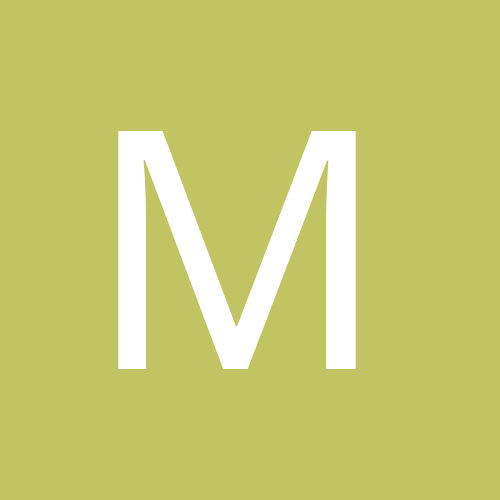
Questions on Ancient Chinese
matthewmerlin posted a topic in Miscellaneous Daoist Texts & Daoist Biographies
Hello everyone! I'm curious about how many people here studies or can read ancient chinese. How did you learn? Can you recommend any accessible textbooks? And if you've had a lot of experience reading ancient texts....how transparent are there in the original? I know from reading the greek magical papyrii and some tantras that the practices themselves are oftentimes veiled and cryptic. Is that the case here too? Also I'm curious if are there any lesser known texts in daoism on energy cultivation and qigong. Stuff in a similar vein as the Yijin Jing (tendon changing classic). Cheers -
Just signed up again. (had to)! After about 20 years of practicing traditional forms of Tai Chi. I've started doing the 24-Form Yang Style. The idea is to start teaching again. I followed a link to the forum and read some interesting posts. So, Thanks Faz
- 1 reply
-
- 2
-

-
- yang style
- taiji
-
(and 4 more)
Tagged with:
-
I'm all for self-message. Please share your experiance and suggestions. I think this is a nice video to start with:
-
Hello everyone! This is my first time ever posting on an online forum : ) I tried to see if something like this had been posted somewhere else but I couldn't find anything recent. I came to this site because I have been trying to find a teacher in the Mo Pai school of Nei Gong, or something very similar. Like probably all of you I've seen that famous old documentary video of John Chang working wonders with his Qi. I read "the magus of java" as well. And again like probably all of you, I've desired that kind of spiritual aptitude/adeptness for a very long time. I started researching the mo pai levels and trying to find information on practice, but I find info that is either untrustworthy or comes from a teacher I know nothing about. And even if the practices in a book are correct...well, i've been at the spiritual practice game long enough to know that having a teacher is crucial for these things to work right and come alive in the right way. Besides, anyone who's truly been practicing these things knows that they can be dangerous without proper guidance. I want a flesh and blood teacher who can teach me up to "level 4" in this system, or again something very similar to it. I'm at the point in my life where I can afford to travel to study with a true teacher, and I can think of no better use of my time and finances. Even if John Chang no longer accepts students, surely some of his students do, or his students' students. These types of practices - manifestation and influencing the world through one's own inner energy, are very close to my heart. I was especially moved by John Chang's ability to heal with this power. I've read of such things in the yogic and tantric traditions, but no one ever discusses techniques to make it happen. A little bit about my spiritual background. I've studied and practiced meditation in the soto zen, tibetan buddhist, and kashmiri shaivism styles. Currently I am very invested in the meditation and energetic practices of kashmiri tantra. I participate in an active native american sweat lodge community, and I've practiced hatha yoga for many years, as well as greek hermeticism. Although I've practiced qigong and studied chinese medicine and daoism, it's admittedly been more of a backburner thing until several months ago.In terms of martial arts, I did TKD for a while as a kid, but haven't followed up much. Several months ago I began doing Bagua in the Ma Gui lineage. My teacher's just had me doing circle walking and palm changes - less martial stuff for now as the tendon changing just starts out. But this Mo Pai and Nei Gong stuff feels like what I've been looking for all along. You know the feeling. For work, I ply my living as a classical astrologer. I majored in philosophy and am a huge ancient language nerd. Thank you so much for taking the time to read this. TL;DR Do you know of any authentic teachers of Mo Pai Nei Gong or something similar who are currently accepting students?
-
In Temple style tai chi, we emphasize the Tai chi ball as a key component to the inner transformation and applications (martial, healing, inner-transformation). This is an excellent video by Sifu Mark Rasmus, whose system I find is the closest to Temple style that I've seen.
-
Hi guys, I have a friend here in Taiwan with a serious condition, she may require surgery but I'm curious if anyone also knows of any well-renowned medical Qigong practitioners, healers here etc that could also provide healing and support. My command of Chinese is basic, so it's a little difficult for me to explore this on the ground, though I know there are some great practitioners here. Any information would be much appreciated : )

